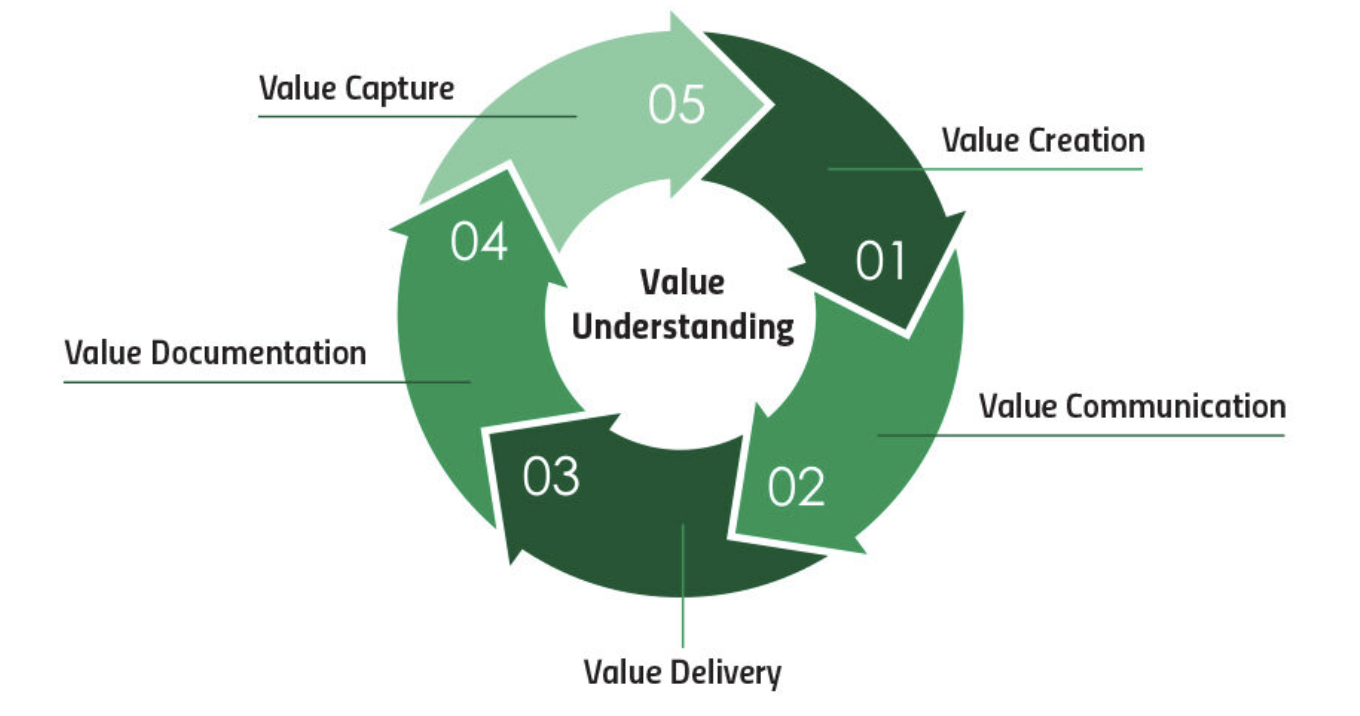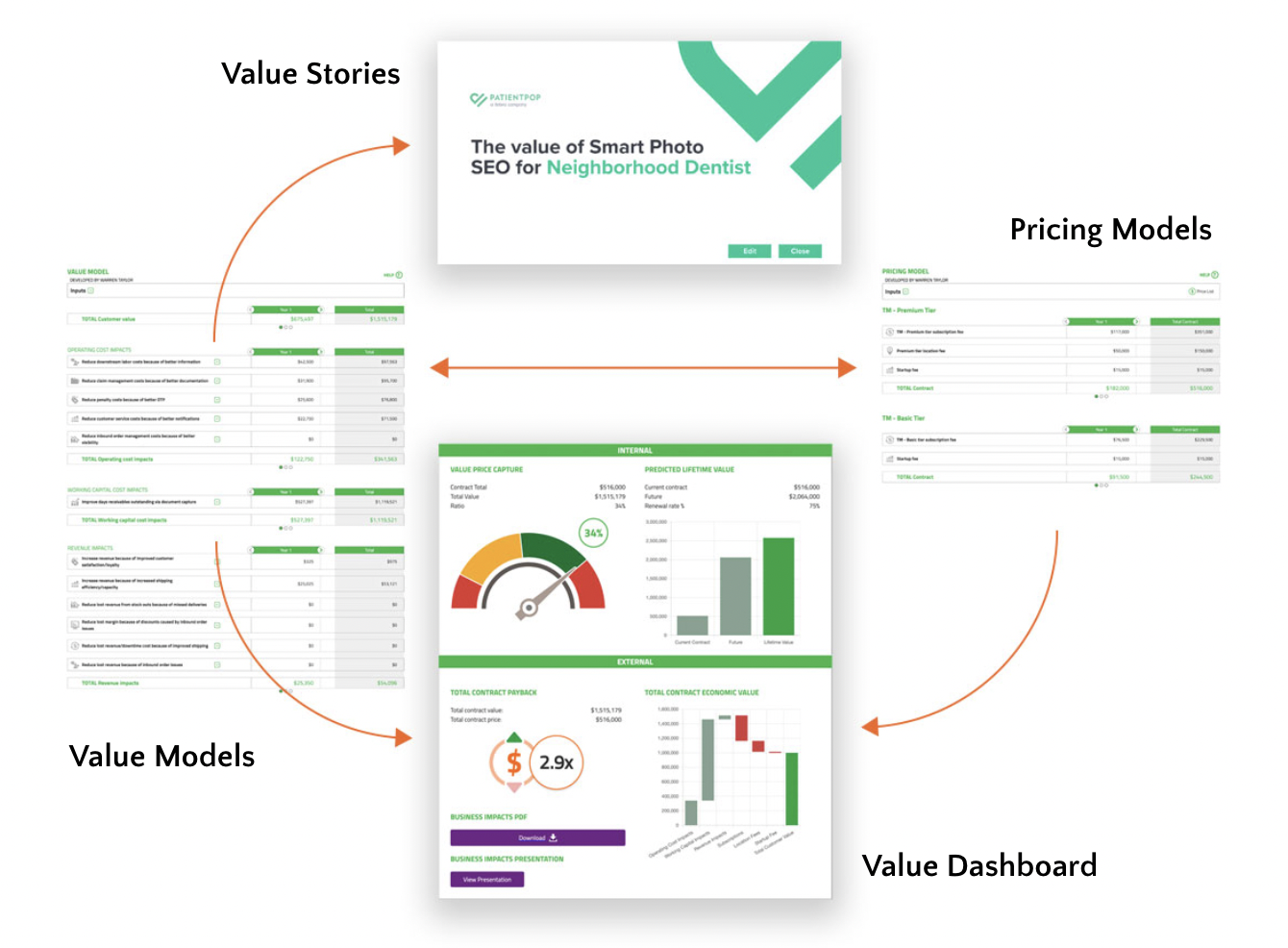Core Concepts: Value Model
Liam Hannaford, Marketing Manager, Ibbaka.
Definition of a Value Model
A value model formalizes how a product or solution creates value for a customer or group of customers (a segment) relative to an alternative. This is foundational for building value in sales and is central to any business value selling strategy. By clearly defining and quantifying value, organizations empower their teams to engage in value-based conversations and effectively communicate the unique benefits of their offering.
Generally, value models focus on the economic value of the solution, though in some cases, emotional and community value drivers are included. You can learn more about value drivers here.
An economic value model is built from value drivers. An economic value driver is an equation that defines one dimension of the value of a solution. It has constants, variables, and operators. The constants tend to be specific to segments, and the variables are company-specific.
The model is a system of equations built from value drivers that estimates how much value a solution will provide to a customer or set of customers (market segment). This approach supports how to sell value by making the value proposition tangible and measurable-a core principle in value selling definition.
Here is an example of a value model on the Ibbaka platform. In this case, there are value drivers for Revenue, Operating Costs (expanded so you can see the equations), and Risk.
How Value Models Are Used
Value models are used by all of the business functions concerned with the customer and how value is provided to the customer. At the center of the Value Cycle is Value Understanding. The Value Model formalizes Value Understanding and enables organizations to engage in value-based conversation throughout the customer journey.
Value Cycle Flywheel
The value model connects features and functions to benefits and, from there, to the value delivered by goods and services. The model provides product and service designers with the means to organize design research and prioritize development, supporting how to build value in sales from the earliest stages.
Applications Across the Business
Pricing Strategy
Value models are essential for implementing value-based pricing. They help identify optimal pricing metrics and ensure prices align with customer-perceived value. Effective pricing design integrates value metrics (units of consumption that generate customer value) with pricing metrics (units of consumption customers pay for). This is the essence of selling on value and added value selling.
Marketing Communications
Marketing teams leverage value models to craft compelling value propositions and messaging. Strategic marketing uses value models for positioning, while tactical marketing transforms them into resonant value stories that highlight key differentiators - essential for selling value and providing strong value selling examples.
Sales Enablement
Throughout the sales process, value models inform value claims that demonstrate the solution's potential impact on prospects' businesses. Documenting these claims enables consistent communication and sets clear expectations for customer success teams. This supports what is value-based selling and ensures every team member can articulate the value of sales.
Customer Success
In modern business models, especially SaaS, customer success is critical. Value models help ensure promised value is delivered and documented, supporting key metrics like renewals and net dollar retention. Proven value delivery simplifies renewal discussions and strengthens business value selling over time.
Financial Planning
Finance teams use value models to assess the relationship between Value to Customer (V2C) and Lifetime Customer Value (LTV). A healthy business typically delivers significantly more V2C than LTV, indicating strong value creation and room for potential price increases.
How to Develop a Value Model?
You must begin with a framework to develop a value model. At Ibbaka, value models are built on Tom Nagle’s approach to Economic Value Estimation. The value drivers serve as a guide for the surveys, conjoint analysis, and interviews used to find and then confirm the value drivers.
This structured approach is a hallmark of effective value selling definition and business value selling.
When it comes to emotional value drivers, the same approach is taken. It is critical to tie emotional value drivers to Buyer and User Personas and to understand how these vary throughout the customer journey and experience.
Community value drivers (increasing positive externalities and reducing negative externalities) are of growing importance in many markets and should not be ignored.
See also:
Value Models at Ibbaka
Ibbaka provides a software platform for the development, management, and use of value models. It also implements your packaging, pricing, bundling, and discounting so that price and value are connected in quotes and proposals.
Value models are transformed into value stories for use by marketing, sales, and customer success, supporting value-based conversations and selling value at every stage.
Benefits of Using Ibbaka
Leveraging Ibbaka Valio can lead to transformative outcomes for your business, including:
Enhanced Conversion Rates: Experience a significant boost in the percentage of prospects who become paying customers, maximizing your sales potential through building value in sales.
Accelerated Sales Velocity: Drive faster sales cycles, enabling your team to close deals more quickly and efficiently by engaging in value-based conversations.
Deepened Customer Engagement: Foster stronger connections with your customers, leading to increased loyalty and satisfaction through added value selling.
Improved Renewal Rates: Achieve higher retention rates as satisfied customers are more likely to renew their contracts and continue their relationship with your brand.
By harnessing the power of Ibbaka, you can unlock these critical benefits and propel your business toward greater success through value-based selling.
Originally published on December 3rd, 2022. Updated on May 15th, 2025
More Reading on Core Concepts in Pricing & Value:
Value Model (this post)






